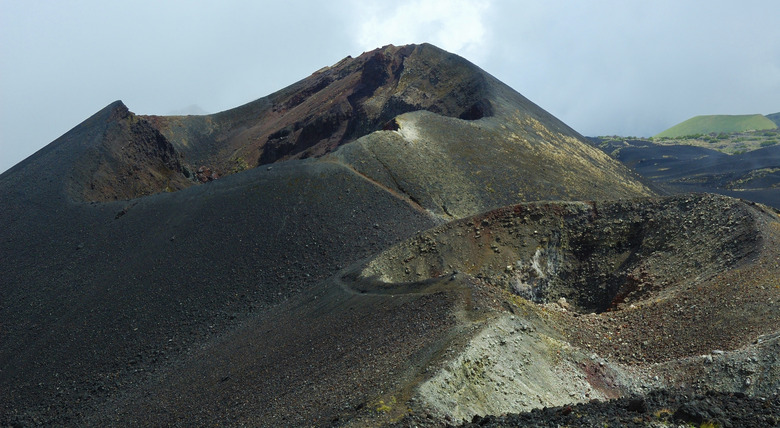Mountains Of West Africa
West Africa is more known for its steamy tropical forests and political turbulence than for its mountains. Most of the region is low lying, although Cameroon has one mountain over 13,000 feet in Mount Cameroon. Other lesser peaks and volcanoes are found across the region, but none higher than 10,000 feet. West Africa is home to a number of active volcanoes and many of its peaks are remote or inaccessible.
Mount Cameroon
Mount Cameroon
The highest peak in West Africa — Mount Cameroon at 13,255 feet — is an active volcano that last erupted in 2000. Its first known eruption was in the 5th Century BC and was recorded by Carthaginian navigator Hanno. It's the closest African volcano to the sea and rises almost directly out of the Gulf of Guinea in West Cameroon. Another volcano, called the Pico de Santa Isabel, reaches 9,868 feet on an island just off the coast. Mount Cameroon was first climbed in 1861 by explorer Sir Richard Burton and can be climbed by hikers, provided it's not erupting.
Pico Basile
Pico Basile
Formerly known as the Pico de Santa Isabel, this 9,878-foot volcanic peak sits on Bioko Island in Equatorial Guinea. It last erupted in 1923 and its lower slopes are covered in tropical forest. Mount Cameroon can be seen from the summit and both mountains are part of the Cameroon line, a rift zone stretching from Lake Chad in the East out into the Gulf of Guinea.
Mount Nimba
Mount Nimba
At 5,748 feet, Mount Niimba or Mount Richard-Molard sits on the borders of Liberia, Guinea and Cote d'Ivoire and is the highest mountain in all three countries. It is also the highest point in the Nimba Range. The whole mountain is rich in iron ore. The Liberia section has been extensively mined while Guinea and Cote d'Ivoire have declared their sections to be nature reserves. The protected parts of the Nimba Range have been declared a UNESCO World Heritage Site.
Mount Bintumani
Mount Bintumani
The highest peak in Sierra Leone, Mount Bintumani or Loma Mansu, is 6,381 feet high and the highest peak in the Guinea Highlands range. The mountain is difficult to access as there are no paved roads nearby.
Pico de Sao Tome
Pico de Sao Tome
Pico de Sao Tome is only technically 6,640 feet above sea level but is in fact the emergent peak of a giant shield volcano that sits on the sea bed in over 10,000 feet of water. This makes it the highest mountain in West Africa despite being primarily under water. As the highest point of São Tomé island in the Gulf of Guinea, the mountain is a continuation of the Cameroon Line. The upper slopes of the mountain are forested and inside the Obo National Park.
Cite This Article
MLA
Bramwell, Alex. "Mountains Of West Africa" sciencing.com, https://www.sciencing.com/mountains-west-africa-7148810/. 24 April 2017.
APA
Bramwell, Alex. (2017, April 24). Mountains Of West Africa. sciencing.com. Retrieved from https://www.sciencing.com/mountains-west-africa-7148810/
Chicago
Bramwell, Alex. Mountains Of West Africa last modified March 24, 2022. https://www.sciencing.com/mountains-west-africa-7148810/
